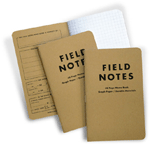by Margaret Atwood
Nan A. Talese
Buy at Powell’s »March 18, 2010
Victor LaValle
Margaret Atwood
Judged by
I raced through The Year of the Flood. Absolutely gobbled it up. I have read one or two others of Atwood’s books, and while I knew going in that her interests and mine do not always intersect, I was surprised at how gripped I was by the story, a romp through an endangered future world with a small group of zealous environmentalists, members of a sort of cult called God’s Gardeners. With the corporate and government worlds melded into a sort of Big Brother, intent in its gene-splicing experiments, the Gardeners’ leader is predicting a catastrophe along the lines of Noah’s flood as God attempts to purge the earth, yet again, of man gone wrong.
So when it came time to turn to Big Machine, I was worried, for LaValle’s sake. But let it be said: This man doesn’t need anyone to worry about him.
In Big Machine, Ricky Rice, an early-middle-aged black man with a checkered past, tells the story of how, one day, he received an anonymous free bus ticket to Vermont, decided to take it, and then fell into a sort of rabbit hole where God was, perhaps, a voice emanating from a cave, scholars spent their days clipping articles from newspapers, and homeless men were being organized to stage a massive attack on society. It is a crazy story, and throughout, Ricky Rice thinks it’s just as crazy as you do.
Both books have an otherworldly quality to them, and both delve deeply into religion and beliefs about self-sufficiency and fate. The Year of the Flood alternates points of view; about half is the third-person story of a middle-aged woman who spent much of her adult life as one of the Gardeners, and the other half is told in first person by a young woman who spent her childhood with the Gardeners. But I wasn’t racing through the book because of its writing; the third-person parts are good, but the voice of the younger narrator, in my eyes, falls flat.
 Keep your lists of books, quotes, and sketches in Field Notes Memo Books. Check our exclusive offer for ToB readers.
Keep your lists of books, quotes, and sketches in Field Notes Memo Books. Check our exclusive offer for ToB readers.Big Machine is told in first person, Ricky Rice’s own story of what happened. And his narration is impeccable. Though his story is one of vast confusion and slow realizations, he is a scrupulously honest and lovable narrator, as here: “I worked at my door handle again. Reached down for my duffle bag so I could break the window open. I’m not saying that was a good idea, just my only one.” He continually reminds you where he’s stowed his heroin (a stabilizing force throughout the goings-on), he takes pride in describing for you his new suits, he tells you the history of his family and his relationships, and he keeps you up to date on the stirrings of his newfound love.
The religious references in Atwood’s book brought it some of its strongest moments, but also its biggest weak point. The use of sermons and hymns to explain the Gardeners’ faith, with its holy days for Sts. Dian Fossey, Euell Gibbons, and Rachel Carson, is clever and entertaining. But Atwood’s book draws heavily on the Biblical flood, and that’s where it falls short. The story of a small group persevering in its purity to survive God’s wrath is as old as, well, the Bible, and it has been retold in many ways over the centuries. The only reason I was so interested to get to the end was that I wanted to see what form the eventual “flood” would take—what was it that would kill off society this time? It was that gimmick that kept me reading.
Big Machine was the opposite, a rewarding experience throughout. The story is compelling in its own right, a truly unusual tale, and his characters make it a memorable ride. Here’s hoping this one goes all the way.
TMN managing editor Kate Ortega is an editor at the online edition of the Wall Street Journal. She lives in Brooklyn. Known connections to this year’s contenders: “None.”